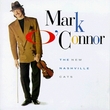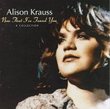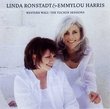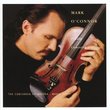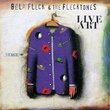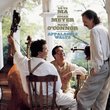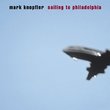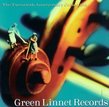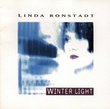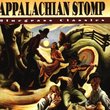| All Artists: Mark O'Connor Title: Heroes Members Wishing: 0 Total Copies: 1 Label: Warner Bros / Wea Original Release Date: 9/14/1993 Release Date: 9/14/1993 Genres: Country, Pop Style: Bluegrass Number of Discs: 1 SwapaCD Credits: 1 UPCs: 093624525721, 093624525745 |
Search - Mark O'Connor :: Heroes
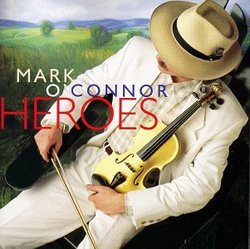 | Mark O'Connor Heroes Genres: Country, Pop
Heroes finds the self-styled "New Nashville Cat" playing fiddle duets with 14 of his idols. Although the guests come from the fields of jazz (Jean-Luc Ponty and Stephane Grappelli), classical (Pinchas Zukerman), worldbeat ... more » ![header=[] body=[This CD is available to be requested as disc only.]](/images/attributes/disc.png?v=a4e11020) ![header=[] body=[This CD is available to be requested with the disc and back insert.]](/images/attributes/disc_back.png?v=a4e11020) ![header=[] body=[This CD is available to be requested with the disc and front insert.]](/images/attributes/disc_front.png?v=a4e11020) ![header=[] body=[This CD is available to be requested with the disc, front and back inserts.]](/images/attributes/disc_front_back.png?v=a4e11020) |
Larger Image |
CD DetailsSynopsis
Amazon.com Heroes finds the self-styled "New Nashville Cat" playing fiddle duets with 14 of his idols. Although the guests come from the fields of jazz (Jean-Luc Ponty and Stephane Grappelli), classical (Pinchas Zukerman), worldbeat (L. Shankar), bluegrass (Byron Berline and Kenny Baker), hillbilly blues (Vassar Clements), old-timey (Benny Thomasson, Terry Morris and Texas Shorty), Cajun (Doug Kershaw), Texas swing (Johnny Gimble), country rock (Charlie Daniels) and Nashville sessions (Buddy Spicher), there's a bit of country fiddling in every performance. O'Connor is more interested in the similarities between these styles than the differences, and the common ground is American frontier dance music. Ten of the 14 tracks are instrumentals, and as anyone who recognizes the above names might guess, they're filled with some astonishing virtuoso performances. To hear O'Connor, a four-time National Fiddle Champion by the time he was 22, trade licks with French jazzman Jean-Luc Ponty or the "Louisiana Man" himself, Doug Kershaw, is to rediscover what the violin can do as lightning-fast melodies and variations slide by in long legato phrases. Most of the pieces are built atop a chunky rhythm section, but the fiddles are pushed to the front of the mix, where they can "sing" like vocalists. And "sing" they do, for O'Connor has wisely chosen these pieces for their personality and melodic pleasure rather than their technical challenges. Vassar Clements, for example, could certainly play a more complicated and showy piece than the slow blues, "House of the Rising Sun," but it's unlikely he could play anything as expressive. Likewise, Johnny Gimble can play a whole lot faster than he does on his signature tune, "Fiddlin' Around," but he'd be hard put to play anything as catchy and fun. And it would be difficult to find an instrumental as sweet and eloquent as the airy fiddle lines played by the 85-year-old Stephane Grappelli on Rodgers & Hart's "This Can't Be Love" and Fats Waller's "Ain't Misbehavin'." Not all the distinguished guests are fiddlers. Mandolinist Bill Monroe and fiddler Byron Berline reunite 25 years later to reprise their composition, "Gold Rush," with Berline's regular partners, guitarist Dan Crary and banjoist John Hickman. On another Monroe composition, "Jerusalem Ridge," O'Connor and Monroe alumnus Kenny Baker are joined by bluegrass legends, dobroist Josh Graves and mandolinist Sam Bush. And the album's best track, "House of the Rising Sun," features Bush, dobroist Jerry Douglas and guitarist Russ Barenberg behind O'Connor and Clements. To hear the fiddles and Dobro bending notes into weary moans and anguished groans on this old song about a brothel is to understand why some songs just don't need a vocal--and why the fiddle is still American music's best link to its past. --Jeffrey Himes Similarly Requested CDs
|
CD ReviewsMark's the fiddler in the right channel ;-) Bob Zeidler | Charlton, MA United States | 07/14/2001 (5 out of 5 stars) "The tongue-in-cheek brief description above serves to point out that this "Heroes" album of Mark O'Connor is a series of duets between O'Connor and other famous fiddlers of every conceivable genre: blues, bluegrass, Cajun, Celtic, country, jazz, Texas-style; even classical (with Pinchas Zukerman) and Indian "raga-style" improvisations with Lakshminorayana Shankar. The fiddlers include (in addition to Zukerman and Shankar) Vassar Clements, Charlie Daniels, Stephane Grappelli, Doug Kershaw, Jean-Luc Ponty and, in a fitting tribute, Benny Thomasson (O'Connor's initial fiddling mentor), as well as three or four others. I'm not going to question how it was that O'Connor succeeded in assembling this roster of famous fiddlers (all of whom played roles in his early development of style and repertoire, and who were hence his "heroes"), but just express my thanks that such a project was not only made possible but has seen the light of day in this recording. "Let us not look a gift horse in the mouth." There isn't a track here that fails to have some phenomenal hot licks on it. Anyone who enjoys fiddling will find something (probably quite a bit) to go ga-ga over in these performances. I certainly enjoy the jazz duets with Grappelli, the echt-classical work with Zukerman, and the sweet tribute to Thomasson, who was to survive the birth of this project by barely a year after his session work. But, like most of O'Connor's projects along these lines, there are inevitably the "jaw-droppers," the tracks that cause one to ask "How'd they do that?" Here are my three favorites: "New Country," with Jean-Luc Ponty: Simply awesome swapping of jazz-rock fusion hot riffs between Ponty and O'Connor, treasurable because Ponty almost never has been involved in projects with fellow fiddlers. "The Devil Comes Back To Georgia," with Charlie Daniels: ALL the stops are pulled out on this one, with not only Mark and Charlie sawing away like crazy but with back-up vocals by the likes of Johnny Cash, Marty Stuart and Travis Tritt. Priceless. "Nomad," with Lakshminorayana Shankar: A real success of an effort on Mark's part to realize an accurate "raga-style" extended improvisation, in duet with Shankar playing on his own invention of a double-necked violin to provide both melody and drone accompaniment. At eight minutes, this is by quite a bit the longest track on the album, but shorter than what a complete and authentic raga might take. I wouldn't have minded a bit had these two guys simply kept right on going. Is there anything that Mark O'Connor cannot do? I tend to think not. As mentioned in the nice introductory notes by Matt Glaser, the Chairman of the String Department at the Berklee College of Music, "...it's a fiddle player's ultimate garden of delights." Amen, brother! Bob Zeidler" Pure Genius Mrs. M. A. Hughes | Dartford, Kent, UK | 02/16/2002 (5 out of 5 stars) "Immerse yourself in the incredible genius of Mark O'Connor and his amazing chameleon-like creative ability to tease so many different moods and styles from his violin. If you like Cajun music - this is for you. If you like Western Swing - this is for you. If you like foot tapping fiddle with a Celtic slant - then this is for you! Classical? Jazz? Blues? Country Rock? Then yeah - you guessed it - this is for you! This is an absolutely fantastic album - a brilliant collection of melodies that bring together some of today's greatest violinists. Pure Genius." The Devil meets Mark O'Connor Mark J. Fowler | Okinawa, Japan | 09/21/2005 (5 out of 5 stars) "Mark O'Connor is one of the greatest musicians to have ever applied rosin to bow. That he is an American should be a source of some pride to any American, and that he is a string musician makes him a living legend to those who like the sound of good fiddlin'.
Like many other great violinists/fiddlers he crosses musical boundaries in a way that breathes life into genres that aren't normally "connected". I'm thinking of an occassion seeing Itzhak Perlman playing "Turkey in the Straw" at breakneck pace. Mark O'Connor certainly has the technique to be a virtuoso violin soloist on any piece with any concerto ever written, but his background as a young man growing up idolizing traditional American fiddlers gives his unique genious a background to paint upon a wide canvas with an infinite variety of musical colors. Mark's gift impresses other musical greats. For musicians there is some interpretation involved between the musical conception and performance - the player must either read the music or think it (for improvisational styles), then they must play it. For Mark O'Connor that interface between "think the music/play the music" is seamless. The most glorious and wondrous music pours out of his instrument. Mark's mother exposed him to music at an early age and his prodigious talent enabled him as a teenager to rub shoulders with violin giants - and to win Grand Masters Fiddle Championships beginning at age 12. (Not coincidentally, he won the National Guitar Flatpicking Championship for the first time a few years later.) He grew up listening to the Cajun stylings of Doug Kershaw, the Western Swing of Johnny Gimble, the Bluesy Bluegrass of Vassar Clements, the Country Sawing of Charlie Daniels, the elegant jazz phrasing of Stephane Grappelli and Jean-Luc Ponty. He became steeped in the music and lore of the fiddle/violin giants, and he practiced. And practiced. And practiced. Now Mark is an icon, undisputed King of the Fiddlin' Giants. This is the album he recorded to honor his role models and mentors and anyone who complains about the multitude of styles on this recording misses the point - Mark is all about multitudes of styles. His music is about finding what makes those musical styles similar rather than adhering to arbitrarily imposed boundaries. Best of all, he absorbs the styles of the masters in a way that makes you think, listening to this wonderful collection of collaborations, that there must be TWO Johnny Gimbles or Buddy Spichers or Jean-Luc Pontys. Mark includes an older recording - a joyful, mind-blowing rendition of the Texas style "Sally Johnson" with the legendary Benny Thomasson, Texas Shorty and Terry Morris - each of the 4 fiddlers plays an artistic, acrobatic rendition, but Mark comes in and plays the final solo that is noticeably more smooth and intricate, at an age when he was too young for a learner's permit. He duets with Vassar on "House of the Rising Sun", with dobro-master Jerry Douglas on board to wail the blues right out of that bordello. He joins Byron Berline with the rest of "California" and the legendary Bill Monroe to reprise "Gold Rush". "The Devil Went Down to Georgia" has long been a crowd pleaser since Charlie Daniels first unleashed it on the world 25 years ago. The musical folktale of the boy fiddler, Johnny, and his encounter with the Devil is a satisfying one because our hero, Johnny, whips the Devil in a fiddling contest, saving his soul and gaining a golden fiddle. Mark approached Charlie Daniels about doing a "sequel" and Charlie agreed, stipulating only that the Devil must lose again. Johnny Cash, the man in black himself, performs the "narration" of the sequel while Marty Stuart and Travis Tritt perform the parts of Johnny and The Devil, and when Mark plays the final fiddle showdown it's as if Paganini has risen from the grave to steal his soul from the Devil one more time. If you're a betting man or woman, and you have a choice in a fiddle contest between Charlie Daniels, The Devil, and Mark O'Connor - put all your money on Mark O'Connor. There are too many highlights to note them all - find out for yourself." |

 Track Listings (14) - Disc #1
Track Listings (14) - Disc #1